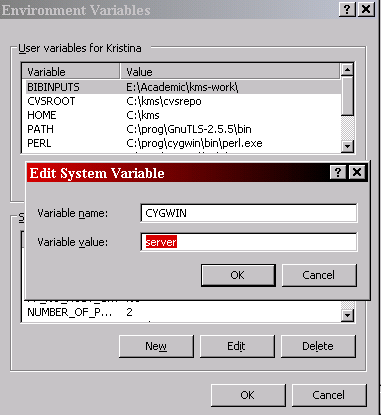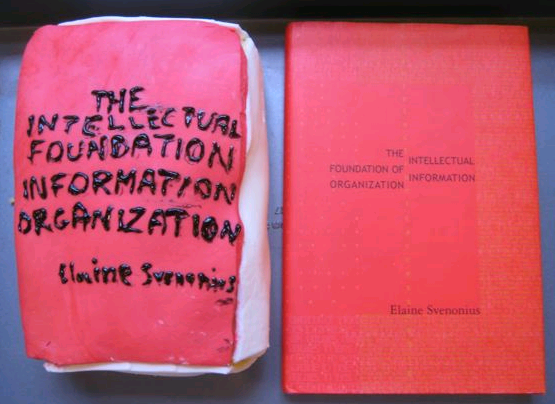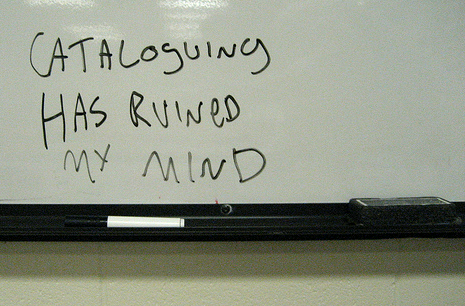Tonight I’m thinking about voice and person in academic writing. I’ve been struggling with choosing and sticking to a particular style.
Research was conducted.
I do not care for the high formal academic style: invisible or distant, third person, inactive researcher/author, passive voice. It pretends at an objectivity that never exists, and it requires all manner of unnecessary words, clauses, and convolution to maintain the curtain of author/researcher invisibility.
I’m used to it in papers on experimental / quantitative research, but I’m always pleased and refreshed by other approaches to composition in such reports.
I did some research.
When I do research, I come up with questions. I decide how to investigate them by designing studies. I make assumptions, reason, and come to some conclusions. My ideas, theoretical lenses, and analysis drive the research. I cannot escape all of my blind spots and biases or pretend they do not exist.
If I have done my job well, the data does not represent me, but my participants. Except, I have to remember that, in much qualitative research, the data doesn’t exist until a researcher starts poking around, observing, and asking people questions. I can’t forget my influence on the data.
It feels dishonest to erase my own voice as researcher and author by writing up such work in high formal academic style. It feels like posing in a costume of objectivity. It also does the reader a disservice by not making explicit my role in the research. The researcher is the primary research instrument in qualitative inquiry; therefore, the results of inquiry cannot be evaluated if the researcher is absent and non-reflexive in reporting.
That said, I tire of repeated Is; they can read as self-centered, narcissistic. The study is not about me. If I start with I, I’m currently seeing no graceful, sensible way to minimize my glaring presence aside from casting the text as an actor. “This paper describes…” “The following section presents/argues/discusses…” That only gets you so far, and definitely not far into the methodology/methods. Further, you must be careful to avoid nonsense like “This paper studied…” I’m sure the drafts I currently have open are riddled with that nonsense.
Feelings.
I have been trying to place my reaction to some of the academic work I’ve run across recently. Case in point:
Leitch, R. “Outside the spoon drawer, naked and skinless in search of my professional esteem: the tale of an “academic pro”” Qualitative Inquiry, 2006, 12: 353-364.
On one hand, the author’s experience in some ways resonates with my own. Thus, I felt some sense of validation and encouragement reading the paper. On the other hand, I felt a sort of irritation and another negative feeling I can’t quite label yet. At one point, I put the paper down and thought, “Why is this published? This is personal journaling material. It is not appropriate to read about this woman crying over her keyboard in a journal that publishes serious and useful methodology and methods papers.” Perhaps the feeling is embarrassment? I’m not sure.
The paper was presented as an exploration of personal experience. I have similar but lesser reactions to some passages reporting qualitative studies. Written in a certain way, explanations of why a topic was chosen, certain questions were asked, or assumptions were made leave me feeling like I’ve non-consensually been pulled into the authors’ group therapy session. Likewise for the papers containing sections about how the researcher felt during the conduct of the study.
The information contained in these passages is required for understanding the study and influences on the results. The trouble for me is that there seems to be a fine line between being reflexively present and honest as a researcher/author, and writing touchy-feely and processy stuff that (to me) belongs in a personal research journal or blog—not in a journal article or book chapter.
I don’t think I’ve figured out how to trace that line without crossing it. The more I write the pronoun I, the more I feel I’m in danger of slipping over.
We are not amused.
I could have sworn that at one point I posted here about we, but I can’t find it.
One of my pet peeves is the single-author article, riddled with we, that displays no explicit statement of team research (or the identities of team members). It is distracting, much like the use of any pronoun with no clear antecedent. Who is this mysterious we? I imagine the author in Queen Victoria drag or as the spokesperson for some secret cabal.
It is I.
So, given my foundational assumptions about the nature of research and my sense of the proper usage of English, it seems I’m stuck with I. So I need to start paying more attention to clever composition tricks useful for avoiding litanies of I statements.
I am a bit concerned about how writing in the first person singular may affect response to submitted articles. I know that I see articles in first person singular in the literature, but I do not have a good sense of the prevalence of usage overall or by specific well-regarded journals. Now I want to throw all other work aside and start a discourse analysis of the LIS literature combined with a survey asking authors to reflect on their use of voice and person.
Note made. Distraction avoided.
As this post nears 1000 words…
I am also committed to writing as simply and concisely as possible without over-simplifying ideas. My natural tendency is toward verbose rambling, so this is a long term challenge.
I’m now also being tempted to avoid pressing work by going through my article file to see if I can find papers by authors writing in a voice that I like. Models are good.
Suggestions of academic authors you consider to be good scholarly writers are welcome. I’m starting a list.
Finally, a bit of writing advice for everyone from The New Fowler’s Modern English Usage:





